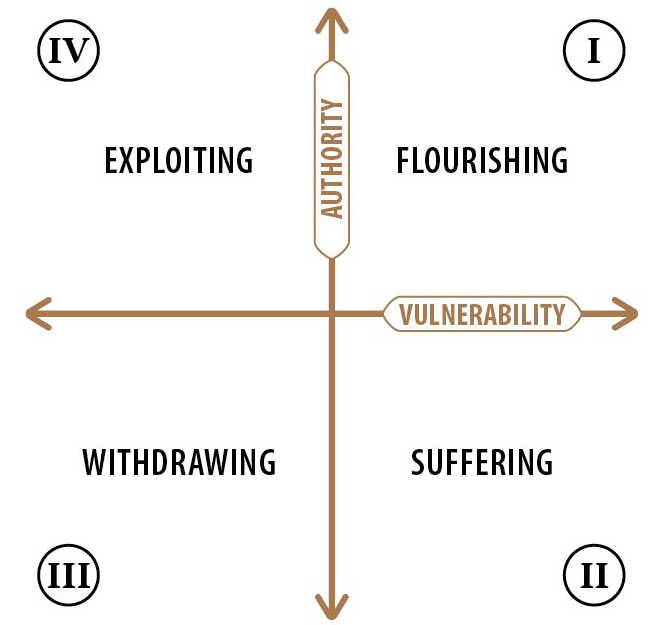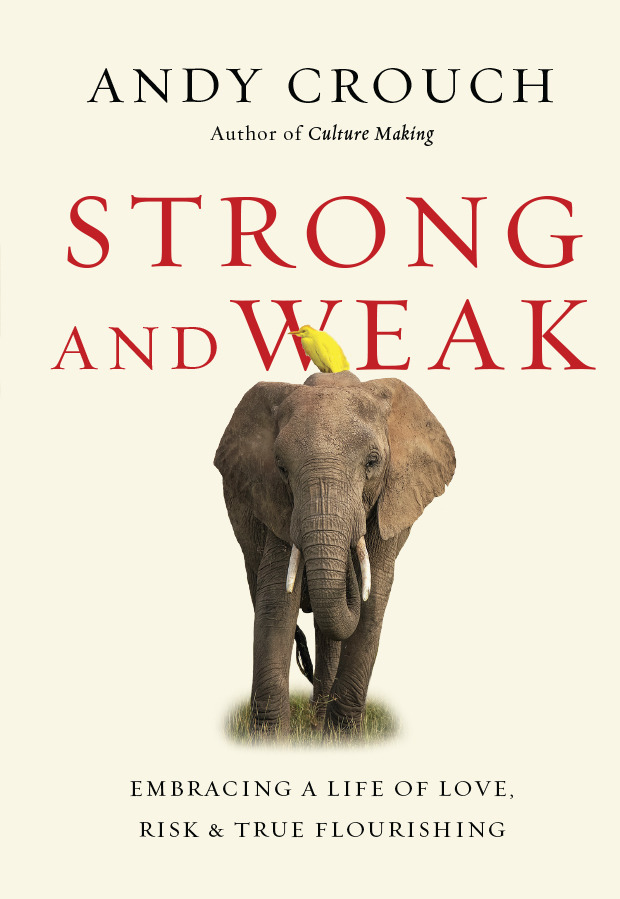 In our discussions about politics, society, and culture, the vocabulary of “human flourishing” has become increasingly popular, moving dangerously close to the status of blurry buzzword.
In our discussions about politics, society, and culture, the vocabulary of “human flourishing” has become increasingly popular, moving dangerously close to the status of blurry buzzword.
Yet at its best, the term captures the connective tissue between the material and the transcendent, the immediate and the eternal, pointing toward a holistic prosperity that accounts for the full complexity of the human person.
In his latest book, Strong and Weak: Embracing a Life of Love, Risk and True Flourishing, Andy Crouch examines the broader ideal. ‘“Flourishing’ is a way of answering the first great question,” he writes. “What are we meant to be? We are meant to flourish—not just to survive, but to thrive; not just to exist, but to explore and expand.”
In order to actually embody that answer, Crouch believes we have to grasp the underlying “paradox of flourishing.” “Flourishing comes from being both strong and weak,” he writes, requiring us to “embrace both authority and vulnerability, both capacity and frailty – even, at least in this broken world, both life and death.”
In truth, most of us tend to elevate one to the detriment of the other, relishing in abuse of power or pursuit of poverty. Yet as humans created in the image of God, and as citizens of an upside-down Kingdom, we are called to embrace and combine each together. Such is the path to real life and abundance, both in the now and not yet.
To understand such a paradox, Crouch argues, we have to reexamine our definitions of authority and vulnerability. Using a 2×2 chart to demonstrate his point (see above right), Crouch explains that, when rightly ordered and properly understood, its a mixture that paves the way to an abundant life.
When we think about authority, for example, we can often fall into traps of exploitation or withdrawal. Rightly understood, Godly authority is something quite different: “the capacity for meaningful action.”
When you have authority, what you do, or do not do, makes a meaningful difference in the world around you…This authority, uniquely ours as the image bearers of God, is a gift in every way. It does not come from our own autonomous selves—it is given by Another. And it is good. The sorrow of the whole human story is not that we have authority, it is the way we have misused and neglected authority. Our drive for authority – our sense of frustration when we are denied it, or our sense of grief when we lose it – comes from its fundamental goodness.
So authority is meant to characterize every image bearer – even the most vulnerable. As infants, long before we could provide for ourselves in any way, we learned that we were capable of meaningful action. We emerged from the womb and instinctively sought to recognize a human face. We learned that others would give meaning to our cries.
When we think about vulnerability, on the other hand, we often fall into traps of glorified suffering or (again) withdrawal. A pursuit of vulnerability is not one that idolizes weakness as a good in itself, but one that values “exposure to meaningful risk.”
The vulnerability that leads to flourishing requires risk, which is the possibility of loss – the chance that when we act, we will lose something we value. Risk, like life, is always about probabilities, never about certainties. To risk is to open ourselves up to the chance that something will go wrong, that something will be taken from us – without knowing for sure whether that loss will come to pass or not.
To be vulnerable is to be exposed to the possibility of loss – and not just loss of things or possessions, but loss of our own sense of self. Vulnerable at root means woundable – and any wound deeper than the most superficial scratch injures and limits not just our bodies but our very sense of self. Wounded, we are forced to become careful, tender, tentative in the way we move in the world, if we can still move on our own at all. To be vulnerable is to open oneself up to the possibility – though not the certainty – that the result of our action in the world will be a wound, something lost, potentially never to be gained again.
 When we combine each of these together, we’re reminded of the upside-down economics of the Gospel, and it yields plenty of implications for our personal walk and witness. But in telling us something about the needs and dreams of the human person, such a framework offers plenty of hints for how we ought to structure and imagine our society:
When we combine each of these together, we’re reminded of the upside-down economics of the Gospel, and it yields plenty of implications for our personal walk and witness. But in telling us something about the needs and dreams of the human person, such a framework offers plenty of hints for how we ought to structure and imagine our society:
The same psalmist who celebrated human dominion over the creatures also was capable of looking up into the heavens and grasping what they meant for the significance, or insignificance, of our small and transitory lives…I have come to believe that the image of God is not just evident in our authority over creation – it is also evident in our vulnerability in the midst of creation. The psalm speaks of authority and vulnerability in the same breath – because this is what it means to bear the image of God…
When authority and vulnerability are combined, you find true flourishing. Not just the flourishing of the gifted or affluent, but the needy and limited as well…In the end, this is what love longs to be: capable of meaningful action in the life of the beloved, so committed to the beloved that everything meaningful is at risk.
So how do we structure a society that cultivates the conditions for such flourishing, keeping the underlying paradox in mind? How do we foster institutions of culture and government that recognize human capacity and create room for “meaningful action”? How do we embrace “exposure to risk” as a value, also using our power, authority, and dominion to protect and nurture and disciple the most vulnerable?
“If we want flourishing, this is what we will have to learn,” Crouch concludes. “What we will have to unlearn, and be saved from, are our failures of authority, vulnerability or both.”
For more, see Strong and Weak: Embracing a Life of Love, Risk and True Flourishing.

